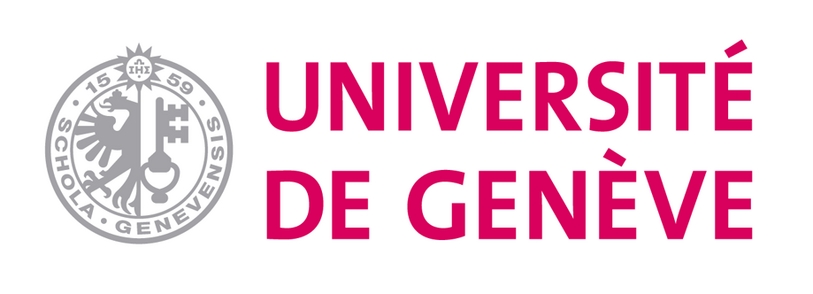Intergenerational transmission of mental health: understanding the role of family interactions inclusive of fathers and translation into family-based interventions
Aims
The adverse impacts of parental postnatal depression (PND) on offspring development are well-documented. Understanding the factors that accentuate/ameliorate intergenerational transmission of mental health is crucial for improving parental/offspring outcomes through targeted interventions.
Current assessment and prevention/intervention efforts focus on mother-child relationships, often excluding fathers. This study aims to:
- Establish acceptable/accessible methodology to assess family interactions inclusive of fathers (triadic mother-child-father interactions).
- Develop Artificial Intelligence (AI)/Machine Learning (ML) protocols to analyse complex observational data capturing family interactions.
- Develop mechanisms and pathways to optimise integration of family-based interventions into practice.
This project is part of the 'Careforce', 'Communities' and 'Frugal Innovations' clusters within King’s Better Health & Care Futures.
Methods
We used co-production methods to involve families from diverse communities in the research process to reflect cultural and social context in the design of research protocols for data collection. We also engaged with partner organisations to co-design care pathways underpinning integration and implementation of family-based interventions into practice.
Workshops
The project consists of three co-production, collaborative and interdisciplinary workshops:
- Co-production workshop with families to co-produce acceptable and ecologically valid protocols to assess triadic (mother-child-father) interactions using innovative methods, the head worn cameras (February 2024).
- Collaborative workshop with health and family practitioners to co-produce strategies/recommendations to maximise uptake of family-based interventions in clinical and community settings (June 2024).
- Interdisciplinary methodological workshop with researchers to develop theory-driven Artificial Intelligence (AI)/Machine learning (ML) approaches to analyse complex observational data on parent-child interactions (September 2024).
Impact
The project facilitated development of extensive collaborations with non-academic partners to widen community involvement in research process and to develop innovative methodological approaches that are acceptable to families. In particular, families were involved extensively in co-producing research protocols to collect data on triadic (mother-child-father) interactions as part of the co-production workshop. Collaborations with South London and Maudsley (SLAM) NHS Foundation Trust and Fatherhood Institute underpinned collaborative workshops with family and health practitioners to co-produce mechanisms for implementation and integration of family-based interventions in clinical and community practice. Partner collaborations will increase potential societal impact of this research, providing non-academic mechanisms of dissemination directly to families through perinatal and community support services. We produced graphic illustrations (see below) capturing co-production process with family and health practitioners and will produce a video to highlight findings of the project after all workshops are completed in collaboration with a videographer.
Watch our video 'Intergenerational transmission of mental health: understanding the role of family interactions'.
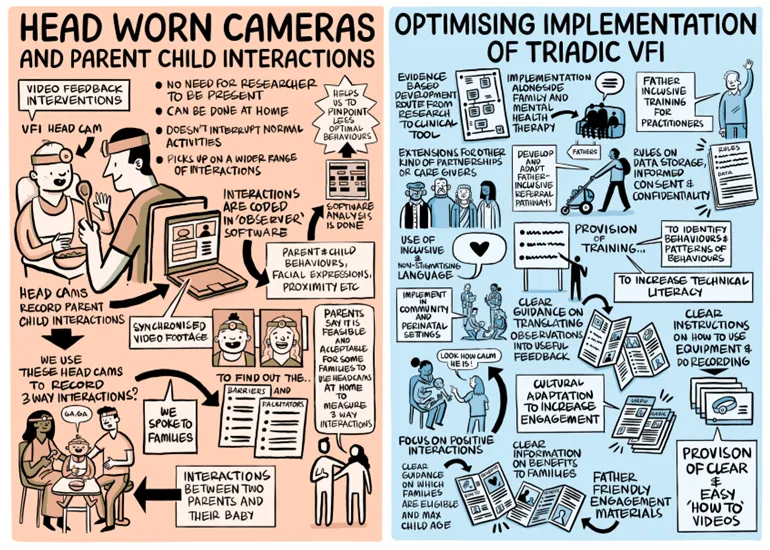
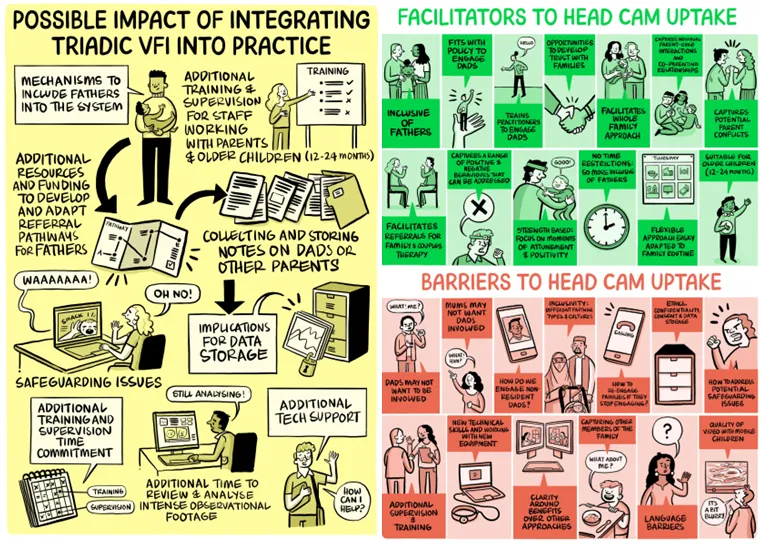
Outputs
The scope of research associated with the project provided invaluable pilot data to support development of the external funding application to the Wellcome Career Development Award (CDA), which will be submitted in November 2024. The project has also facilitated development of a cohesive interdisciplinary research team, comprising national and international researchers and non-academic partners (clinicians, perinatal mental health professionals, yearly years and community practitioners, charities, public Health officers, and commissioners) to strengthen Wellcome CDA application and future external funding applications. Pilot data collected as part of the project will be developed into academic outputs, including publication of co-designed protocols to assess triadic (mother-child-father) interactions using innovative methods (wearable head cameras), co-produced recommendations to increase integration and implementation of family-based interventions in clinical and community practice and reflections on developing interdisciplinary theory-driven Artificial Intelligence (AI)/Machine learning (ML) approaches to analyse complex observational data on parent-child interactions. Study will also be disseminated through oral presentation at the World Psychiatric Association (WPA) World Congress of Psychiatry (WCP) in November 2024.
Our Partners

Institute of Applied Psychology (ISPA)

University of Bristol
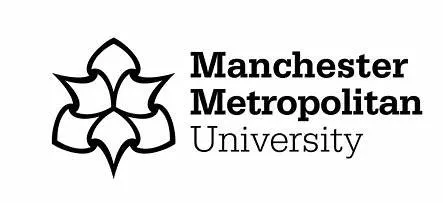
Manchester Metropolitan University
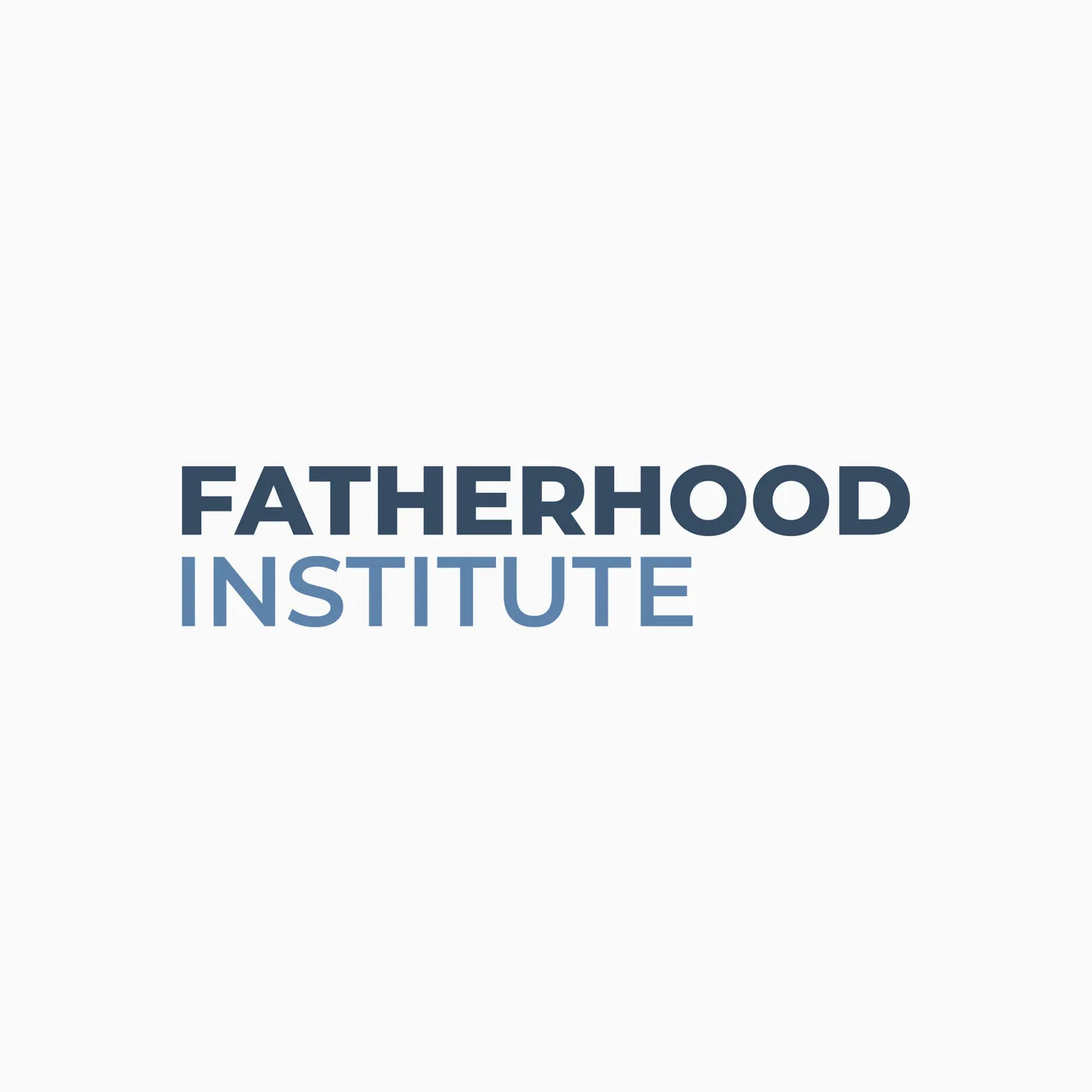
Fatherhood Institute Family Stories Group

Centre for Parent and Child Community Perinatal Services

